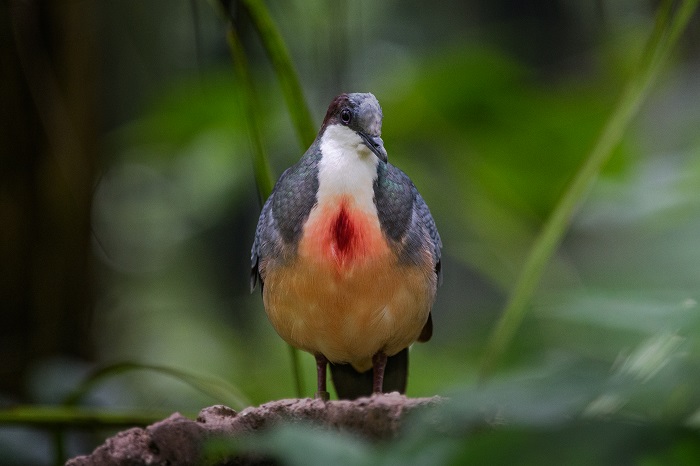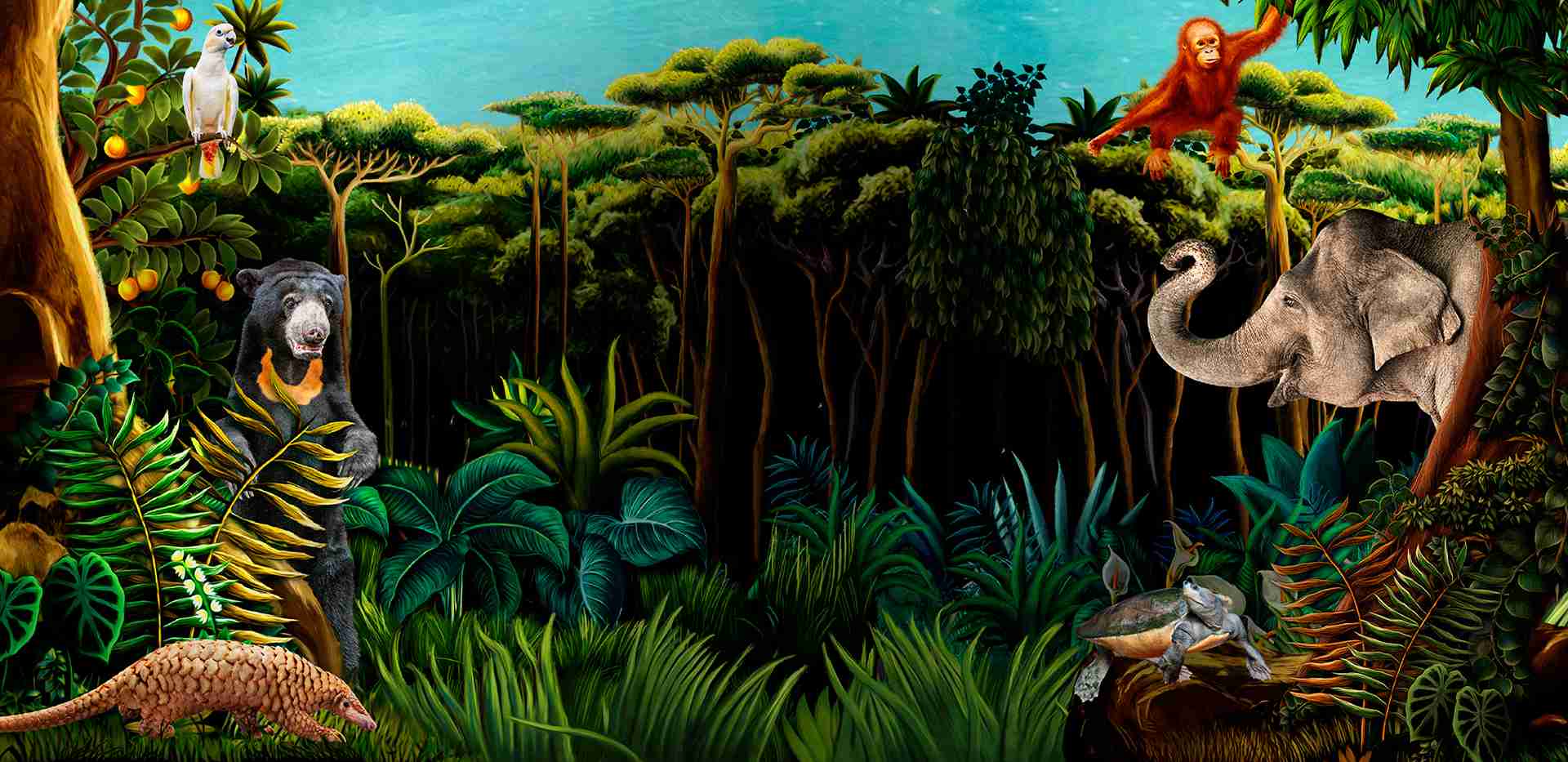Bleeding-hearts of Jurong Bird Park return home to the Philippines
 A Luzon bleeding-heart in Jurong Bird Park’s Wings of Asia aviary. Two pairs were first introduced to the avairy in 2012. Today, 10 descendents of the original pairs were repatriated to the Philippines as part of the conservation breeding with the Department of Environment and Natural Resources (DENR) of the Philippines.
A Luzon bleeding-heart in Jurong Bird Park’s Wings of Asia aviary. Two pairs were first introduced to the avairy in 2012. Today, 10 descendents of the original pairs were repatriated to the Philippines as part of the conservation breeding with the Department of Environment and Natural Resources (DENR) of the Philippines.
 His Excellency Joseph del Mar Yap, Ambassador of the Republic of the Philippines to Singapore (right) receiving the transport crate from Mathias Quek, Junior Animal Care Officer, Jurong Bird Park (centre) and Dr Luis Neves, Director of Zoology, Wildlife Reserves Singapore (left) as a symbolic gesture to mark the official handover of the Luzon bleeding-hearts to the Philippines.
His Excellency Joseph del Mar Yap, Ambassador of the Republic of the Philippines to Singapore (right) receiving the transport crate from Mathias Quek, Junior Animal Care Officer, Jurong Bird Park (centre) and Dr Luis Neves, Director of Zoology, Wildlife Reserves Singapore (left) as a symbolic gesture to mark the official handover of the Luzon bleeding-hearts to the Philippines.
Amidst the current COVID-19 pandemic when most flights are grounded, the pigeons caught a historical flight this morning from Singapore to the Philippines, after completing a mandatory month-long quarantine and series of health checks to determine that they are in the pink of health. His Excellency Joseph del Mar Yap, Ambassador of the Republic of the Philippines to Singapore, was present in Jurong Bird Park yesterday to officially receive the birds. After arriving in Manila, the birds will undergo another month-long quarantine in the care of the DENR before the agency determines a release of the birds to a protected area on their native island of Luzon.
Since their arrival in Singapore, the Luzon bleeding-hearts have been thriving in JBP’s Wings of Asia aviary. The park has successfully bred a total of 60 birds.
“This repatriation demonstrates the critical role that zoological institutions play in the conservation of threatened species, and we are proud to play our part. Under human care, we provide the animals with a safe environment, alongside high standards of care, welfare and world-class healthcare, to establish and propagate assurance colonies. The ultimate goal is to be able to help strengthen populations in the wild when there is a need for it and this is just the beginning because we hope there will be many more reintroductions to come,” said Dr Luis Neves, Director of Zoology at Wildlife Reserves Singapore (WRS).
The Luzon bleeding-heart got its name from its distinct splash of vivid red right in the centre of their white breast, with a reddish hue extending down to their belly. The shy ground dweller is endemic to the rainforests of central and southern Luzon, and on the neighbouring Polillo Islands in the Philippines. Unfortunately, their striking appearance make them a prime target of poaching for the pet trade. Combined with habitat loss, the birds are listed as near threatened under the International Union for Conservation of Nature’s (IUCN) Red List of Endangered Species.
Assistant Secretary for Climate Change and concurrent Director of the Biodiversity Management Bureau, Department of Environment and Natural Resources (DENR) of the Philippines, Ricardo L. Calderon, lauded the efforts of Wildlife Reserves Singapore (WRS) in its historical achievement on the ex-situ conservation breeding of the species. He further added that, among other known strategies, mutual beneficial collaborations with zoological institutions, as exemplified by this joint undertaking with WRS, shall allow those species at risk of extinction to flourish. Once these repatriated captive-bred birds are reintroduced back to their forest habitats, Mr. Calderon is confident that these new additions shall contribute to the perpetuation of the species’ population in the wild.
Extensive medical tests were conducted on the birds to deem them healthy prior to the export.
PHOTO CREDITS: WILDLIFE RESERVES SINGAPORE
Dr Ellen Rasidi, veterinarian at Jurong Bird Park’s Avian hospital drawing blood from one of the Luzon bleeding-hearts prior to their month-long quarantine in Jurong Bird Park’s quarantine facility.
PHOTO CREDITS: WILDLIFE RESERVES SINGAPORE
The 10 Luzon bleeding-hearts were crated and transported to make the four-hour flight from Singapore to Manila. They will undergo another month-long quarantine under the care of the DENR of the Philippines before the agency determines a release of the birds to a protected area on their native island of Luzon.
PHOTO CREDITS: WILDLIFE RESERVES SINGAPORE

